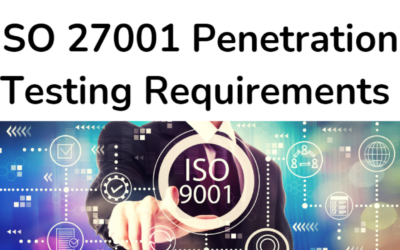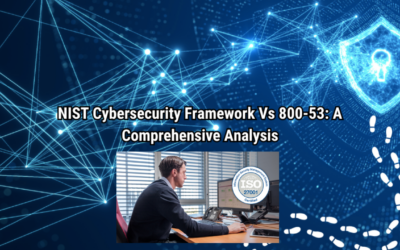In today’s digital age, businesses are exposed to a growing range of cyber threats, data breaches, and regulatory pressures. The importance of securing sensitive information, whether it pertains to clients, employees, or internal business data, cannot be overstated. As a result, many organizations are turning to ISO 27001 Consulting Services, the globally recognized standard for information security management, to protect their assets and meet compliance requirements.
ISO 27001 provides a structured framework for establishing, implementing, maintaining, and improving an Information Security Management System (ISMS). However, achieving ISO 27001 certification requires expert knowledge and a significant investment of time and resources. This is where ISO 27001 consulting services come in. These services provide organizations with the expertise needed to implement the standard efficiently, ensuring they not only meet the certification requirements but also strengthen their overall information security posture.
This article explores the importance of ISO 27001 consulting services, their benefits, the process of engaging a consultant, and how these services help organizations successfully achieve ISO 27001 certification.
What is ISO 27001?
ISO 27001 is part of the ISO/IEC 27000 family of standards, developed by the International Organization for Standardization (ISO) and the International Electrotechnical Commission (IEC). The standard specifies the requirements for establishing, implementing, maintaining, and improving an Information Security Management System (ISMS). The ISMS framework covers various aspects of information security, including risk assessment, security controls, compliance, and governance.
ISO 27001’s primary goal is to protect the confidentiality, integrity, and availability of sensitive information through the adoption of appropriate controls. Achieving ISO 27001 certification demonstrates an organization’s commitment to managing and securing its information, which is vital for building trust with customers, clients, and partners.
ISO 27001 is widely applicable to all types of organizations, regardless of size or industry. Whether a company deals with customer data, intellectual property, or financial information, having an ISMS in place can mitigate risks, meet regulatory requirements, and ensure business continuity in the event of a security incident.
The Role of ISO 27001 Consulting Services
ISO 27001 certification involves several stages, including risk assessment, policy development, security control implementation, training, audits, and certification audits. While organizations may attempt to implement the standard on their own, the process can be complex and time-consuming, requiring expert knowledge and experience.
ISO 27001 consulting services offer businesses the guidance and support necessary to navigate the complexities of the certification process. These services are provided by professional consultants who specialize in information security, risk management, and ISO 27001 compliance. Consultants can offer practical solutions and tailored advice, ensuring that organizations can meet the requirements of the standard efficiently.
Key Benefits of ISO 27001 Consulting Services

- Expertise and Guidance ISO 27001 consultants bring in-depth knowledge of the standard’s requirements and best practices. They help organizations avoid common pitfalls during implementation and ensure that all necessary steps are followed to achieve certification. Consultants understand the intricacies of the standard and how it applies to different industries, making them valuable assets to businesses pursuing ISO 27001 certification.
- Streamlined Implementation ISO 27001 consultants guide organizations through every step of the implementation process. They conduct gap analyses, design tailored information security policies, and assist with the risk assessment and treatment process. This structured approach ensures that organizations meet the standard’s requirements efficiently and effectively. The guidance provided by consultants helps organizations avoid costly delays and ensure that the certification process proceeds smoothly.
- Improved Risk Management ISO 27001 is built on a risk-based approach, which requires organizations to identify, assess, and mitigate risks to information security. Consultants help businesses conduct thorough risk assessments, evaluate the likelihood and impact of potential threats, and develop effective risk treatment plans. This risk management approach not only helps organizations achieve ISO 27001 certification but also enhances their overall security posture.
- Cost and Time Savings Hiring ISO 27001 consultants can help organizations save time and money by streamlining the implementation process. Consultants can quickly identify gaps in the organization’s information security practices, ensuring that the business doesn’t waste resources on unnecessary tasks. Additionally, consultants help organizations implement the standard in a manner that minimizes disruption to daily operations, ensuring a quicker return on investment.
- Compliance with Legal and Regulatory Requirements Many industries and jurisdictions have specific data protection and information security regulations, such as GDPR, HIPAA, or PCI-DSS. ISO 27001 consulting services ensure that organizations meet these legal and regulatory requirements, minimizing the risk of penalties, fines, or reputational damage. Consultants help businesses align their ISMS with these regulations and ensure compliance, avoiding legal challenges related to data protection.
- Continuous Improvement ISO 27001 is not a one-time certification; it requires continuous monitoring, assessment, and improvement. Consultants help organizations establish systems for ongoing internal audits, monitoring, and periodic reviews of their ISMS to ensure continuous compliance and improvement. This ensures that an organization’s information security practices evolve to address emerging threats and changing business needs.
- Employee Training and Awareness A key element of ISO 27001 certification is ensuring that all employees understand their roles in maintaining information security. Consultants provide training and awareness programs to ensure that staff are informed about the policies, procedures, and practices required to protect sensitive information. By fostering a culture of information security, organizations are better equipped to detect and prevent potential threats.
The ISO 27001 Consulting Services Process
ISO 27001 consultants follow a structured approach to help organizations implement an ISMS and achieve certification. The process can be broken down into the following key stages:
1. Initial Assessment and Gap Analysis
The consultancy process begins with an initial assessment and gap analysis. The consultant reviews the organization’s current information security practices, policies, and procedures, comparing them with ISO 27001’s requirements. This helps identify areas of non-compliance or where improvements are needed. The consultant also assesses the organization’s overall risk profile to understand its security needs.
2. Risk Assessment and Risk Treatment Plan
A core component of ISO 27001 is the risk assessment process, which involves identifying and assessing potential risks to the confidentiality, integrity, and availability of information. The consultant facilitates this process by helping the organization identify security threats, vulnerabilities, and potential consequences. Once risks are identified, a risk treatment plan is developed to mitigate, accept, transfer, or avoid these risks. Consultants help organizations implement appropriate security controls to manage the risks effectively.
3. Designing the Information Security Management System (ISMS)
Once the risks have been assessed, the consultant helps the organization design and implement the ISMS. This includes developing policies, procedures, and guidelines that align with ISO 27001’s requirements. The consultant works with the organization to ensure that the ISMS covers all necessary aspects, such as access control, data protection, incident management, and business continuity. These documents serve as the foundation for the organization’s information security framework.
4. Implementation of Security Controls
ISO 27001 requires organizations to implement a series of security controls to protect their information assets. Consultants help design, implement, and monitor these controls, which may include technical measures such as encryption, firewalls, and access management systems, as well as organizational controls such as security awareness training and incident response protocols.
5. Internal Audits and Monitoring
Once the ISMS is in place, ISO 27001 consultants assist organizations in conducting internal audits to assess the effectiveness of their information security practices. The consultant helps ensure that all required controls are being properly implemented and that there are no gaps in compliance. Regular monitoring and reporting ensure that the ISMS remains effective and compliant with the ISO 27001 standard.
6. Employee Awareness and Training
Consultants provide training sessions to educate employees about information security policies and their role in protecting sensitive data. This training is vital to ensuring that all staff are aware of security risks and know how to address them. Employees learn about secure practices, data handling procedures, and the importance of maintaining a secure environment.
7. Certification Audit and Support

When the organization is ready for certification, the consultant helps prepare for the external certification audit. This involves ensuring that all documentation is complete, all security controls are in place, and that the ISMS is fully compliant with ISO 27001. The consultant provides support during the certification process, helping address any issues raised by the certifying body to ensure a smooth certification.
8. Ongoing Maintenance and Continuous Improvement
ISO 27001 is not a one-time process; it requires ongoing monitoring, auditing, and improvement. Consultants help organizations establish systems for regular reviews, audits, and updates to their ISMS. This ensures that the organization’s security controls evolve in response to new threats, changes in the regulatory landscape, and shifts in the business environment.
Conclusion
ISO 27001 consulting services are a vital resource for organizations looking to implement an effective Information Security Management System and achieve ISO 27001 certification. These services provide expert guidance, streamline the certification process, and help organizations mitigate security risks while ensuring compliance with legal and regulatory requirements.



0 Comments